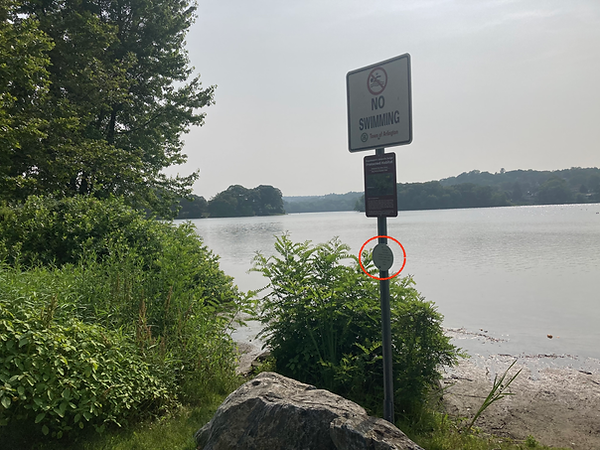
June, 2023
Floating wetlands installed in Spy Pond to filter water and remove toxic algae.



More info
Harmful algal blooms in Spy Pond have been becoming more frequent in the 2020s due to a combination of nitrogen and phosphorus pollution and warming water temperatures with climate change. In 2023, Arlington launched an experimental solution: floating wetlands.
Floating wetlands, also referred to as islands, are “small artificial platforms that allow aquatic plants to grow in water that is typically too deep for them”. They simulate wetlands and work to remove phosphorus and nitrogen from the water – nutrients which can help spur growth of algae – and create a refuge for zooplankton to hide, which are microscopic animals that eat the cyanobacteria creating the problem. Some existing plants that have been implemented are Arrow Arum, Swamp Rose, and Swamp Milkweed. Multiple floating wetlands have already been installed in McClennen and Menotomy Rocks Park via an Eagle Scout project.
The chance of algal blooms – excessive growth of (sometimes toxic) algae in bodies of water – has increased with climate change. They occur when water temperatures are elevated because of the rise in global temperatures – whether in salt or freshwater. These toxic algal blooms had already started appearing in 2021, causing eye and skin irritation. Originally, these blooms were combated with chemicals, but as chemicals can negatively affect humans and they do not regenerate the natural environment, floating wetlands were chosen later on. Toxin levels are hard to predict, having the ability to vary from day to day. Toxic freshwater algae are no walk in the park. One type (microcystis) can lead to gastrointestinal illness and liver damage. While there are variants that aren’t toxic, they can still lead to an undesirable habitat for both the ecosystem and us. These floating wetlands have helped remarkably – not only in our town, but in locations all around the nation.
TAKE ACTION NOW!
If you wish to preserve this iconic landmark of our town, you, too, can volunteer to clean-up or do other activities with Friends of Spy Pond– who have raised funds for plantings of native plants to stop erosion and the installation of handicapped accessible paths and observation decks in Spy Pond Park.
Floating wetlands aren’t the only type of nature-based infrastructures (called “green infrastructure”) to work against climate change; here are some others which you can advocate for:
-
Trees can be planted to provide shade and reduce urban heat.
-
Storm water treatment systems can be engineered with soil and plantings to absorb, slow down and/or clean polluted water at times of flooding.
-
Restoring wetlands and natural shorelines can help to manage sea level rise and hurricane storm surges.
Sources:
Town of Arlington, Health and Human Services News
https://www.arlingtonma.gov/Home/Components/News/News/11458/1525?human=services&fsiteid=1#!/
Department of Ecology/State of Washington, Is a harmful algae bloom coming to a lake near you?
https://ecology.wa.gov/Blog/Posts/March-2020/Is-a-harmful-algae-bloom-coming-to-a-lake-near-you
National Institute of Environmental Health Sciences, Algal Blooms
https://www.niehs.nih.gov/health/topics/agents/algal-blooms/index.cfm
The Charles River Conservancy has installed large floating wetlands in the Charles River. You can find info on their website.
https://thecharles.org/floating-wetlands/
Charles River Conservancy has produced a short video explaining why algae flourishes due to phosphorus and nitrogen pollution -- the same thing would happen in Spy Pond. Floating Westland Series #2: Why Cyanobacteria Thrive in the Charles (YouTube.com)
2020 Annual Water Bodies Report, Arlington Conservation Commission/Water Bodies Working Group
https://www.arlingtonma.gov/town-governance/boards-and-committees/conservation-commission/projects